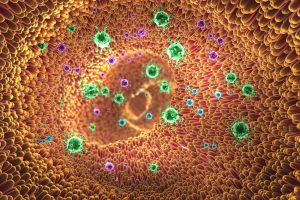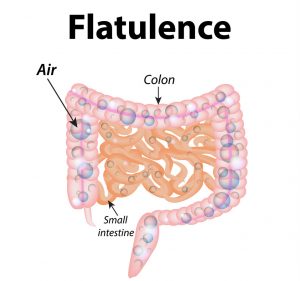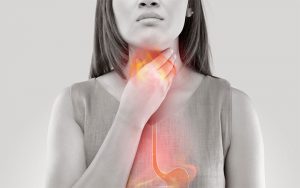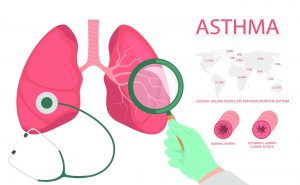The most important symptoms of an unhealthy gut
An unhealthy gut has symptoms such as skin problems, etc., that significantly impact overall physical health; recognizing these symptoms can be the best way to use it for health.
The most important symptoms of an unhealthy gut
As you know, having a healthy digestive system is very important because people’s gut health is a general indicator of their health. Intestinal bacteria produce 90% of the body’s serotonin and support the body’s immune system. If there is an imbalance of gastrointestinal bacteria, some symptoms should be taken seriously, although some symptoms are nonspecific and associated with other diseases.

The direct effect of digestive disorders on the whole body
The gastrointestinal tract is responsible for absorbing nutrients and preventing the absorption of toxins into the bloodstream. Anything you eat can affect the whole body through the stomach and intestines. A healthy gut removes toxins from the body and provides the nutrients the body needs. If your digestive system is dysfunctional, your health will suffer.
Many experts believe that the intestines play a role in overall physical health because digestive disorders affect the whole body. Bowel problems can be temporary or chronic, so you should identify an unhealthy bowel’s symptoms and take the best steps for your small or large intestine’s health.
Individual symptoms with unhealthy intestines
High appetite for sugar:
Sugar is necessary for the body’s functioning, including the brain, so use natural sugars in foods because sucrose or white sugar is very harmful. Sugar is added to processed foods and beverages and is highly addictive.

When sugar enters the gut, the harmful bacteria are nourished, and as a result, the balance of good and bad bacteria is upset. This imbalance between good and bad bacteria causes a person to eat a lot of sugar due to having harmful bacteria. More needs to be converted. He cites cravings for sugar as a sign of imbalance in the body system.
Skin problems:
The skin has many immune system cells to protect against bacteria, viruses, and other harmful substances. Still, when one of the skin immune system cells is inactive, both inside and outside the body, it may react, leading to inflammation or a red rash. Intestinal bacteria’s risk can cause itching and various skin diseases such as eczema, urticaria, and psoriasis due to food allergies or food intolerances.
Mood swings:
Emotions strongly affect the gastrointestinal tract because the brain and intestines are in close contact with each other. Emotions can cause reactions in the stomach and intestines, including pain and diarrhea. More than 100 million nerve cells that are part of a complex system called the intestinal nervous system cover the gastrointestinal tract.
Nerves and mood directly affect the gastrointestinal tract function, and the imbalance of bacteria in the gastrointestinal tract can affect a person’s mood. Intestinal bacteria produce about 90% of the body’s serotonin. Serotonin is a neurotransmitter that acts as a mood stabilizer, a regulator of anxiety, and reduces depression.
Even the slightest imbalance in gut bacteria compromises the body’s ability to produce serotonin. A change in mood, anxiety, or depression can be a sign of imbalance.

Flatulence:
Flatulence is one of the most common symptoms of bloating. Although it does not indicate a severe illness, it does indicate a gastrointestinal problem. Flatulence occurs when the gastrointestinal tract is unable to digest food properly.
Diarrhea:
Diarrhea is one of the most common and severe symptoms of other gastrointestinal diseases such as irritable bowel syndrome, Crohn’s disease, and inflammatory bowel disease. Chronic diarrhea leads to other problems such as malnutrition because food is quickly eliminated from the body and the body system is unable to absorb any nutrients.
Bad Breath:
Another symptom of an imbalance between good and bad bacteria in the gut and yeast or candida in the gut is bad breath. Even if you consume too much sugar, you may notice bad breath because yeast, candida, and harmful bacteria feed on sugar and grow when the diet is high in sweeteners.

Acid reflex:
An unhealthy gut usually causes stomach acid reflux, so relieving heartburn is a bit difficult. Acid reflux, bloating, and belching are often caused by the accumulation of unhealthy bacteria in the gastrointestinal tract and stomach.
Acid-lowering drugs can help the growth of beneficial bacteria because stomach acid kills harmful bacteria.
High cholesterol and triglycerides:
Intestinal germs may affect heart health. There are 34 microorganisms in the gastrointestinal tract that can affect blood lipids.
Researchers are also investigating the link between HDL, beneficial cholesterol, and higher biodiversity of gut bacteria.

Asthma:
If you have asthma, it may be due to an imbalance of bacteria in your gut at birth. Intestinal balancing can help improve asthma symptoms.
Also Read:
40 Tips to Prevent Obesity in Middle Age










